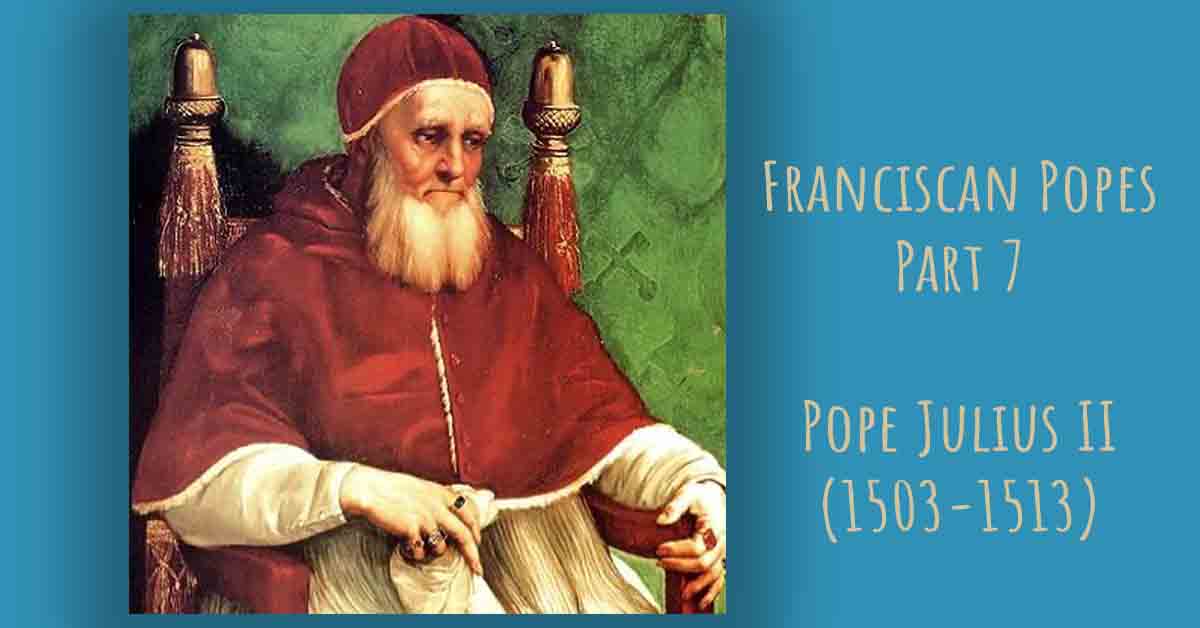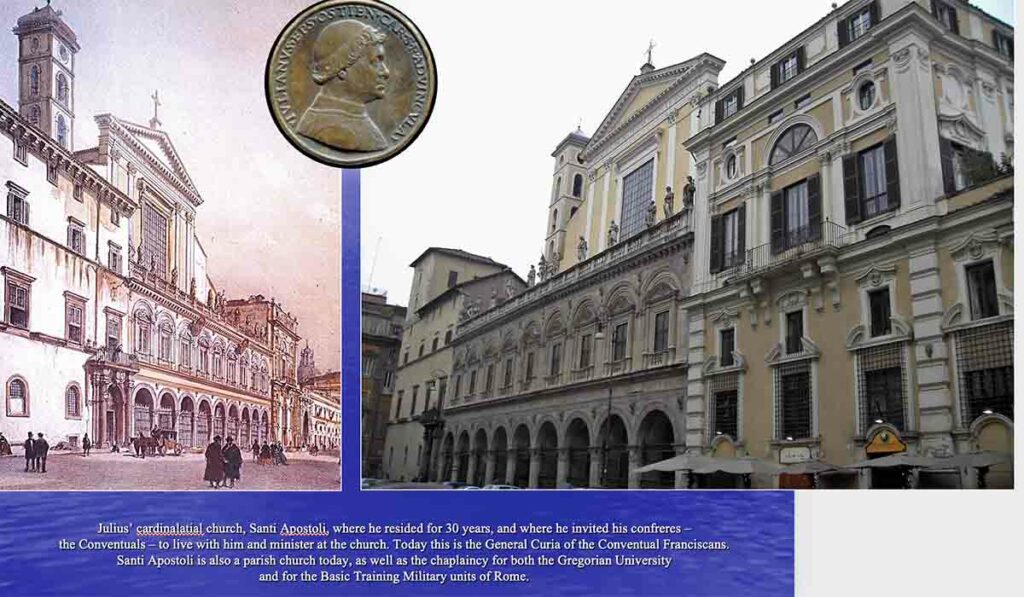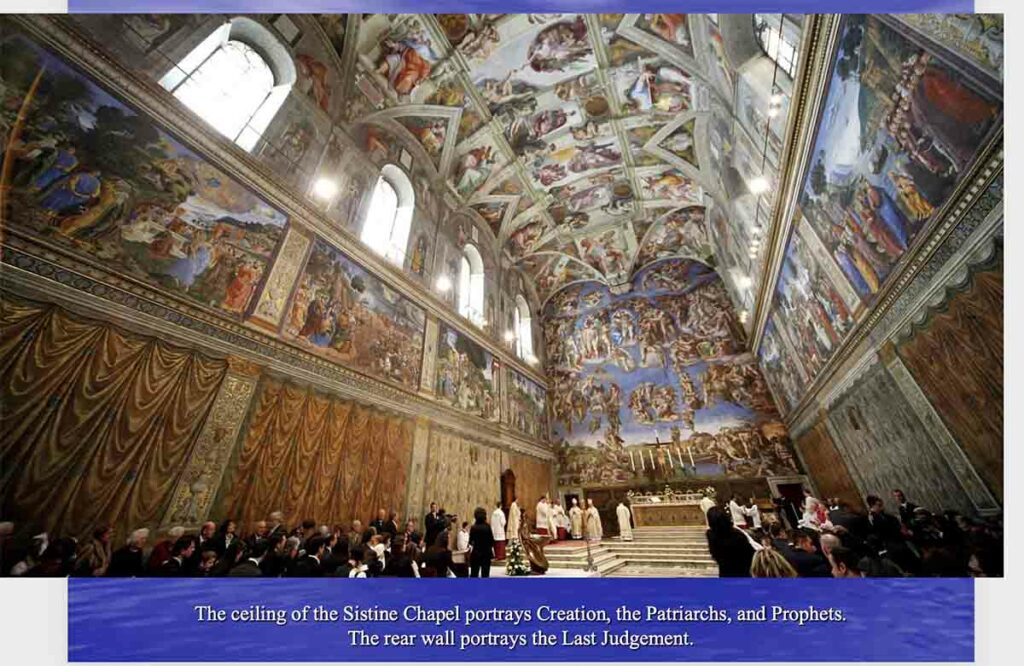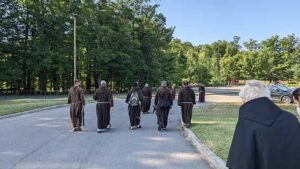Franciscan Popes - Part 7
(An excerpt from a presentation by friar Joseph Wood OFM Conv.
Read the introduction to this series
Read Part 2 of the the series: Pope Gregory XI?
Part 3: Pope Nicholas IV
Part 4: Pope Alexander V
Part 5: (pope) Nicholas V
Part 6: Pope Sixtus IV)
Giuliano della Rovere was the nephew of Pope Sixtus IV. As a young man he was sent to study with the Franciscans and kept under his uncle’s wing. Some historians believe that he never actually entered the Franciscan Order; that he remained a lay student or a diocesan cleric (in minor orders) while with the friars. Other historians presume that he may have been a mature/long-term novice with the Conventuals until his uncle, as pope, created him a cardinal at twenty-eight. One way or another, the Conventuals have always claimed him as their own.
Immediately upon Julius’ elevation as a cardinal, and after having received Santi Apostoli as one of his titular churches, he invited his Franciscan confreres to minister there permanently. For thirty years while residing at Santi Apostoli, that he thought of himself as a Franciscan may be further attested to by the regular habit of signing his name frater Julianus.
Believing himself to be a second Julius Caesar, as Pope Julius II, he spent much of his pontificate reclaiming territories and repairing the damage done to the internal structure of the Church by his infamous predecessor, Alexander VI (Rodrigo of the powerful Borgia family).
Toward the end of his days he admitted that he had spent too much time on a battle horse and not enough time on his knees. But it was his swift and capable handling of obstinate opponents – that earned him the epithet, “The Warrior Pope,” – that prevented further anarchy in Church government and further solidified ecclesiastical rights.
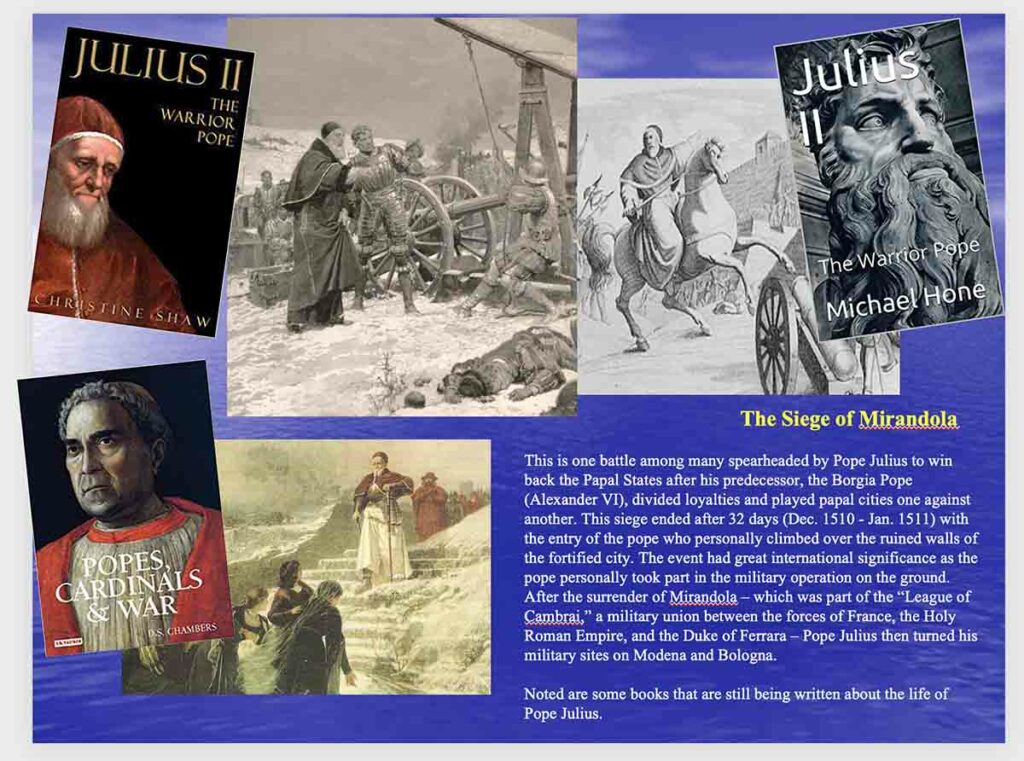
Pope Julius believed the Church to be the preeminent institution for promoting good in the world. Therefore, he used skillful diplomacy and an able army to secure the Church’s place in the midst of other nation states.
To further the objectives of his papacy, Julius called the Fifth Lateran Council in 1511 for the purpose of immediate reform. Julius inherited a bankrupt Church with a plundered treasury. However, during his reign financial stability was restored, simony eliminated, and ironically enough, nepotism was greatly reduced. At the same time, Julius was attentive to the artistic and cultural developments of the Church. He commissioned Donato Bramante to begin building the present basilica over the tomb of Saint Peter. He had Michelangelo (a parishioner of Santi Apostoli, his cardinalatial church), fresco the Sistine Chapel. And in 1503, he donated his personal collection of manuscripts and art works to create the Vatican Museum.
Years later, during the Risorgimento (the Italian Revolution, 1850-1870), many came to appreciate Julius as laying the foundation for the modern nation of Italy by expelling foreign domination and outlining “Italian” territories.
Next in the series – Part 7b
Cardinal Nephews “Sometimes you get good nephews and sometimes you don’t.”

